Past Keynotes
2025 Keynote

Manley Feinberg
Keynote title: Exponential Commitment
Manley is the founder of Vertical Lessons, Inc. He is an award winning international
keynote speaker, business leader and author. Leveraging more than twenty years of
business, professional speaking and adventure experience, his insight and energy will
inspire and equip you to step up and reach your next summit.
In fact, he wrote a book titled, Reaching Your Next Summit! 9 Vertical Lessons to Lead with More Impact. Manley’s 11 years of leadership influence contributed to a workplace culture that
landed Build-A-Bear Workshop on the FORTUNE 100 Best Companies to Work For® List four years in a row. Manley served two terms as the president of the St. Louis chapter of the National
Speakers Association
On a personal note, Manley likes to sleep on the side of mountains. Even more shocking is that his wife has been putting up with that for more than two decades, and he has two teens that still kiss him on the cheek in front of their friends.
2024 Keynote

Dr. Jason Gulya
Keynote title: "AI for Teaching and Learning"
Dr. Jason Gulya is Professor of English at Berkeley College. He teaches writing and the Humanities. Increasingly, he has turned his focus on how to teach writing and critical thinking by using Generative Artificial Intelligence programs like ChatGPT and Google's Gemini. He has work with hundreds of educators on incorporating AI into their classrooms, and has worked with more than a dozen colleges and universities.
2023 Keynotes

Dr. Vanessa Kahen, Director, WCU Moon Shot for Equity, Professor and Chairperson of the Department of Psychology
Dr. Vanessa Kahen is a Professor of Psychology and Director of WCU’s Moon Shot for Equity. She teaches courses in Multicultural Psychology, Child and Family Psychotherapy, Abnormal Psychology, Research Methods, and Statistics. Drawing on over 25-years of experience in higher education, Dr. Kahen believes in the need to develop student-centered universities. She co-chaired the West Chester University Equity Scorecard team from 2011-2014, leading her university’s effort to find effective pathways to closing racial equity gaps in student access, retention, and completion rates by identifying and remediating unintended obstacles contributing to racial disproportions in student success. She has also headed the development and implementation of a new Doctor of Psychology program and training clinic providing supervised clinical training for Psy.D. students and affordable mental health care to the community. She earned her Ph.D. in Psychology from the University of California, Berkeley.
Finding our superpower: Leveraging technology and humanity to inspire equity mindedness in student success
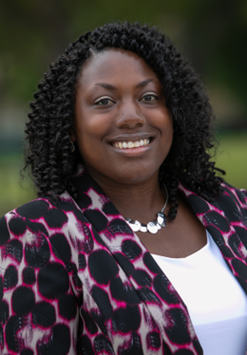
Dr. Sharla Berry, Assistant Professor in the Center for Evaluation and Educational Effectiveness (CEEE) at California State University, Long Beach
Dr. Sharla Berry is an educator and an expert in the field of digital equity and online learning. Her research has been featured in many academic journals including Online Learning, the Journal of Computing in Higher Education, and the International Review of Research in Open and Distributed Learning. She is the author of a recently released book, Creating Inclusive Online Communities: Practices that Support and Engage Diverse Students. The book is for faculty, administrators, instructional designers, faculty developers and other staff members who seek to incorporate principles of diversity, equity, and inclusion into their online and hybrid classes. It presents an expansive perspective of the ways in which educators can leverage technology in asynchronous, synchronous and hybrid environments to engage all students.
Dr. Berry received her doctorate in Urban Education Policy from the University of Southern California, and her Master of Arts in Elementary Education from Loyola Marymount University. She is currently the Associate Director of the Center for Evaluation and Educational Effectiveness at California State University, Long Beach.
Teaching for Connection: Creating Online Communities for Diverse Learners
A sense of community is a key factor in online students’ engagement and retention. Diverse learners, including low-income students, students of color, students with disabilities, and students in caregiving roles experience community differently. In this session, Dr. Berry will outline what it means to create inclusive online course communities that support diverse learners. Topics to be explored include leveraging technology to promote peer interaction, connecting with students synchronously and asynchronously, and ensuring equitable participation in online courses.

Dr. Bernard Bull, President of Concordia University Nebraska
Dr. Bernard Bull serves as the 11th President and Professor of Administration at Concordia University, Nebraska. His work and research focuses on education innovation, education forecasting & trend analysis, methods and models of educational research and development, and the intersection of education and digital culture. Prior to Concordia University, Nebraska, Bernard served as President of Goddard College, Associate Professor of Education & Vice Provost at Concordia University Wisconsin, and CEO of Birdhouse Learning Labs, a firm dedicated to promoting a world where inspired learning is pervasive. Bernard has served as a keynote and invited speaker for over two hundred education groups throughout the world, and an education consultant for universities, K-12 schools, education startups, think tanks, professional associations, and publishing companies.
The Power & Promise of Human-Centered Learning Environments
Bernard Bull draws from two decades of applied research on learning experience design to offer a vision for the international creation of learning environments that foster deeply human phenomena like wonder, meaning, agency, compassion, connection, play, mastery, mystery, experimentation, and adventure.
2022 Keynote

Randy Waterman, Security Specialist
Randy Waterman is a Security Specialist and has been with GreyCastle Security since 2019. He has over five years’ experience in the cybersecurity industry. Randy has 10 years’ experience in the Army grasping the concepts and understanding of policy and regulation.
As a member of the Business Services team, Randy specializes in organizational risk assessments and remediation guidance. He has worked with organizations in the Healthcare, Higher Education, Manufacturing and Technology industries. Randy is knowledgeable in NIST-800, HIPAA, GLBA, FERPA, PCI, CMMC and many others.
2022 Keynote: Cybersecurity Awareness - Tips, Techniques, Challenges, and Panel Discussion with GreyCastle Security
GreyCastle Security will lead a panel of higher education security experts to discuss end-user roles in protecting student information, cybersecurity trends, and solutions institutions use to combat their growing cybersecurity concerns.
2021 Keynote
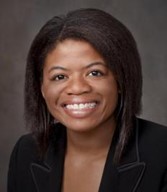
Dr. Tracie Marcella Addy
Dr. Tracie Marcella Addy (addyt@lafayette.edu) is the Associate Dean of Teaching and Learning and Director of the Center for the Integration of Teaching, Learning and Scholarship at Lafayette College in Easton, Pennsylvania. She has a B.S. in Biology (Duke University), M.Phil. in Experimental Pathology (Yale University), and Ph.D. in Science Education (North Carolina State University). As the director of the Center for the Integration of Teaching, Learning and Scholarship (CITLS), Dr. Addy is responsible for working with instructors across all divisions and ranks to develop and administer programming, as well as provide services and resources in support of the teacher-scholar model. Her partnerships with instructors across appointment types have been award-winning. In addition to overseeing CITLS, Dr. Addy has responsibilities within the Provost’s Office and serves on the College’s Teaching and Learning Committee as an ex officio member.
Dr. Addy actively publishes in teaching and learning in addition to educational development. She writes case studies, and investigates the intersections between active learning and technology, and inclusive teaching. She is also a frequently invited keynote speaker at conferences and symposia. She is currently a CourseSource editor for manuscripts within the journal’s Professional Development & Career Planning and Science Process Skills categories. She is a co-author of the book What Inclusive Instructors Do: Principles and Practices for Excellence in College Teaching.
Connect with Dr. Addy on LinkedIn or Twitter. For more information about her work, view her personal and Center websites.
2021 Keynote: Where Do We Go From Here? Teaching During COVID-19 and Beyond
During this keynote presentation we will reflect on the “wins” experienced while teaching during the COVID-19 pandemic, in addition to the opportunities that have arisen as a result of the challenges. We will discuss how we can use what we have learned in order to effectively teach at this current moment in higher education and beyond.
2020 Keynote
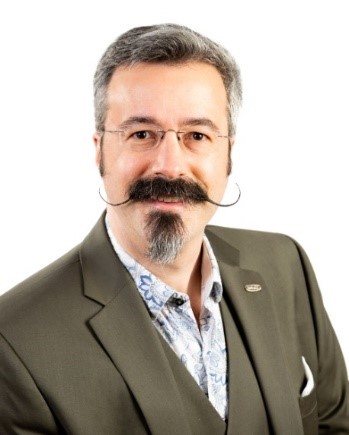
Thomas J. Tobin, PhD, MSLS, PMP, MOT, CPACC
Thomas J. Tobin is the Program Area Director for Distance Teaching & Learning on the Learning Design, Development, & Innovation (LDDI) team at the University of Wisconsin-Madison, as well as an internationally recognized speaker and author on topics related to quality in technology-enhanced education, especially copyright, evaluation of teaching practice, academic integrity, and accessibility/universal design for learning.
Before joining UW-Madison, Tobin served for five years as the Coordinator of Learning Technologies in the Center for Teaching and Learning (CTL) at Northeastern Illinois University in Chicago, and spent seven years in the Learning and Development arm of Blue Cross and Blue Shield of Illinois.
Since the advent of online courses in higher education in the late 1990s, Tom’s work has focused on using technology to extend the reach of higher education beyond its traditional audience. He advocates for the educational rights of people with disabilities and people from disadvantaged backgrounds.
He holds a Ph.D. in English literature, a second master’s degree in information science, a professional project management certification, a master online teacher certification, Quality Matters certification, and recently completed his Certified Professional in Accessibility Core Competencies (CPACC) certification (he tells his nieces and nephews that he is in 42nd Grade).
Tom serves on the editorial boards of InSight: A Journal of Scholarly Teaching, the Journal of Interactive Online Learning, and the Online Journal of Distance Learning Administration.
His books include
- Evaluating Online Teaching: Implementing Best Practices (2015) with Jean Mandernach and Ann H. Taylor.
- The Copyright Ninja: Rise of the Ninja (2017).
- Reach Everyone, Teach Everyone: Universal Design for Learning in Higher Education (2018) with Kirsten Behling.
- Going Alt-Ac: A Guide to Alternative Academic Careers (in press, 2020) with Katie Linder and Kevin Kelly.
Tom was also proud to represent the United States on a Spring 2018 Fulbright Scholar fellowship, under which he helped Eötvös Loránd University in Budapest, Hungary to develop its first faculty-development program, and he provided workshops and training to twelve other colleges, universities, and military programs throughout Hungary
2020 Keynote: Uncover the Secrets about Universal Design for Learning
To help make educational materials and practices inclusive and useful for all learners, this interactive keynote from the author of Reach Everyone, Teach Everyone radically reflects on how faculty members and course designers can adopt Universal Design for Learning in order to create learning interactions that provide students with more time for study and practice in their busy days: broaden our focus away from learners with disabilities and toward a larger ease-of-use/general-inclusion framework. At the same time, participants will define specific interactions where they can start a UDL project within a limited span of time and resources.
2019 Keynote
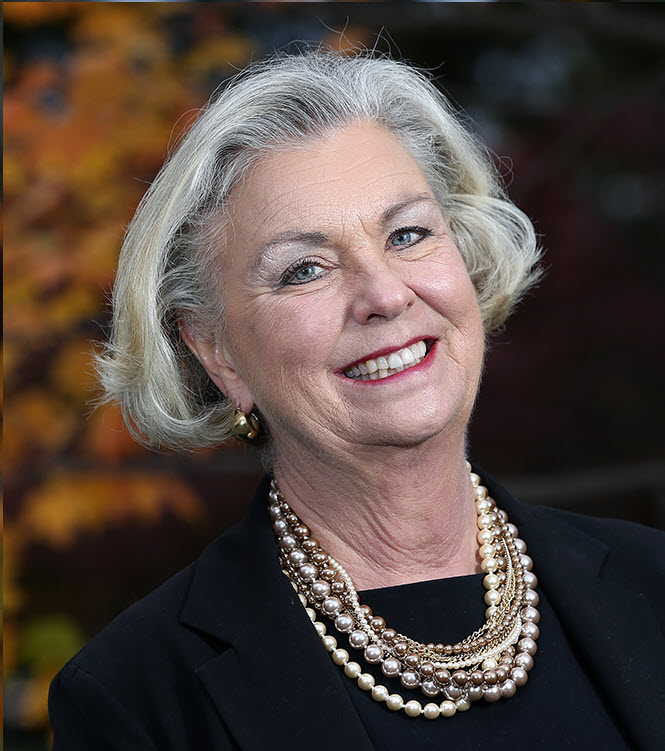
Bobbe Baggio, Ph.D., CEO, Advantage Learning Technologies, Inc.
Since 2002, Bobbe Baggio has been CEO of Advantage Learning Technologies, Inc. a company that provides programs, products and research for workplace learning. Bobbe believes that technologies are here to help everyone and to enhance human performance Her area of expertise is the integration of technologies to enhance human performance including adult and workplace learning. Bobbe has held academic positions as the Associate Dean of Graduate Programs and Online Learning, Adjunct Faculty, Associate Provost and Graduate Program Director of the MS program in Instructional Technology Management.
Bobbe is the author of five books, an engaging public speaker, strategic advisor and educator in the field of instructional technologies and learning.She is a consultant in learning and talent development for a global and virtually connected workforce. He most recent article is “AI and the Agile Workforce”, published in Workplace Solutions Magazine, 2nd Quarter Ed., 2019. Bobbe’s expertise draws upon her experience as a Fortune 100 IT manager, 20 years of consulting experience, and her doctoral studies in instructional design for online learning. Examples of clients include The Federal Reserve Bank, Pfizer, Novartis, Johnson & Johnson, University of Pennsylvania, DOD, PASSHE, Merck, BMS, KPMG, Siemens, Ticketmaster, IMG, Tyco Engineering, Fisher, Christiana Care Health System, Cisco and Adobe.
2019 Keynote: Higher Ed 3.0
Over the last several decades’ higher education has been descending on increasingly slippery slope. Colleges and universities, including those fancy and elite, have some fundamental problems; one of these is economic weight. They spend more every year to finance growing administrations and tuition continues to increase. David Gelernter stated in the WSJ in January 23, 2017 “Over 90% of U.S. colleges will be gone within the next generation, as the higher-education world inevitably flips over and sinks.” If that happens who really loses? Can higher education raise from the ruins to reestablish itself in the very important roles it has always played (the creation of new knowledge, the decimation of existing knowledge and the preservation of knowledge) to benefit future generations? High-Tech will certainly play a significant role in that transformation. Moving past changes in time and place, the next revolution in learning will be driven by individualization and reality. Can higher education make the shift?
2018 Keynote

Bryan Alexander, Ph.D, founder, Bryan Alexander Consulting, LLC
Bryan Alexander is an internationally known futurist, researcher, writer, speaker, consultant, and teacher, working in the field of how technology transforms education. He completed his English language and literature PhD at the University of Michigan in 1997, with a dissertation on doppelgangers in Romantic-era fiction and poetry, and is a former professor of literature, writing, multimedia, and information technology studies at Centenary College of Louisiana.
Today, the preponderance of his work focuses on social media, digital storytelling, mobile devices, gaming, pedagogy, scholarly communication, forecasting, and the future of academia. He has been interviewed by and featured in MSNBC, US News and World Report, National Public Radio, the Chronicle of Higher Education, the National Association of College and University Business Officers, Pew Research, Campus Technology, and the Connected Learning Alliance.
In 2013 Bryan launched a business, Bryan Alexander Consulting, LLC, through which he consults throughout higher education in the United States and internationally. He also speaks widely and publishes frequently, with articles appearing in venues including The Atlantic Monthly, Inside Higher Ed.
Bryan is currently writing Transforming the University in the Twenty-First Century: The Next Generation of Higher Education for Johns Hopkins University Press (forthcoming 2019). His two most recent books are Gearing Up For Learning Beyond K-12 and The New Digital Storytelling (second edition)
You can learn more about Bryan by visiting his website, http://futureofeducation.us, following him on Twitter @Bryanalexander, or subscribing to his monthly report, Future Trends in Technology and Education.
2018 Keynote: Past, Present and Future of Higher Education
It is clear that technology has played an integral part in transforming education. In this Keynote, we will examine evolving technologies, their adoption by educators, peek into the future of instruction, and predict the impact on Higher Education.
This keynote will draw attention to the Future Trends in Technology & Education, how educators should react to emerging technologies, adapt to technology empowered students, and continue the transformation of the physical and digital learning space.
2017 Morning Keynote
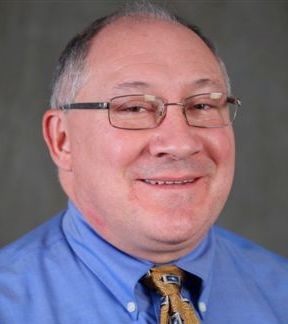
Marc Andonian, Ph.D., Gartner Executive Programs (EXP) Vice President/Executive Partner
Dr. Andonian provides critical insights, strategic advice, and executive coaching to Chief Information Officers (CIOs) and other C-level executives in a broad range of industries as they develop and deliver initiatives that support their organization's mission critical priorities. Marc's research interests are around strategic benefits realization, strategy, the value of practical IT management disciplines, and the development and practice of leadership disciplines and models that support high performing teams. He has 30+ years of IT and business experience, serving in executive roles with Fortune 150, Nasdaq 100, S&P 500 and startup-firms, after working as an adjunct university professor/lecturer and research scientist, and managing his own analytics consulting and market research firm. He is a life scientist (exercise physiologist and gerontologist), and applied statistician by training, and is published in scientific and technology journals.
2017 Keynote: "Innovation Frameworks – Applying the Gartner Hype Cycle and Market Clock to Education"
Educators are at the forefront of innovation, looking for creative ways to teach traditional and new subjects by leveraging best practices and modern technologies. We will introduce two Gartner frameworks (Hype Cycle, and Market Clock) that can be adapted to better understand the value and risks associated with innovation opportunities. We will explore these frameworks in the context of Education – including the topics associated with this conference. Attendees will be able to:
- Describe the components, attributes and implications of the Hype Cycle and Market Clock
- Explore conference presentations using the frameworks as a contextual background
- Explain how organizational temperament affects appetite for risk and opportunity
- Use the frameworks to evaluate your own ideas and those of your colleagues or institutions to drive innovation in education.
2017 Afternoon Keynote

Deke Kassabian, Ed.D., West Chester University Vice President and Chief Information Officer (CIO)
Dr. Dikran (Deke) Kassabian is Vice President for Information Services & Technology and Chief Information Officer at West Chester University of Pennsylvania. His areas of expertise include information technology planning and strategy development for higher education, and aligning IT with mission. Deke has been a frequent speaker at Internet2 and Educause conferences on topics ranging from network design and security on high performance networks to the use of virtual worlds in education. He holds a B.Sc. in Computational Mathematics from Long Island University, an M.Sc. in Electrical and Telecommunications Engineering from the University of Rochester, and an Ed.D. from the University of Pennsylvania with dissertation research involving Massive Open Online Courses (MOOCs). He also teaches graduate and undergraduate college courses in distributed systems and networking protocols.
2017 Keynote: Reflecting on the RECAP Experience
In this closing Keynote, West Chester University VP and CIO Deke Kassabian will lead an interactive session in which we tie together experiences from the day. Your feedback via twitter and other formats, collected throughout the day, will be the fuel that makes this session possible. We will touch upon many of the sessions, and their presence on the "hype cycle" and/or "market clock," with the context on these session topics coming directly from your feedback. In the end, we will discuss the maturity of ideas from today's presentations, and brainstorm about the set of technologies and major themes that are showing promise in delivering a high degree of competitive advantage in the next few years.
2016 Keynote
Amy S. Goldman, MS, CCC/L, Temple University
View Amy Goldman's RECAP Keynote Presentation
Amy S. Goldman, MS, CCC/L is the Co-Executive Director of the Institute on Disabilities at Temple University, PA's University Center of Excellence in Developmental Disabilities and an Associate Professor in the Department of Psychological, Organizational and Leadership Studies. She is the Principal Investigator for the Commonwealth's statewide program under the federal Assistive Technology Act of 2004 (Pennsylvania's Initiative on Assistive Technology [PIAT]) as well other local, state, and federal projects related to assistive and accessible technology across the life span. Amy has specialized in augmentative and alternative communication (AAC) throughout her long career as a speech-language pathologist, conducting pre-service training, professional development, and consulting with families and people with disabilities regarding assistive technology. Recent international work has included consultation with UNESCO on accessible information and communication technology (ICT) competencies for educators and ICT access policies in accordance with the UN Convention on the Rights of Persons with Disabilities. She is the co-coordinator for the AAC strand for the Assistive Technology Industry Association (ATIA), Vice President for Finance of the US Society for AAC (USSAAC) and a member of the National Joint Committee on the Communication Needs of Persons with Severe Disabilities (NJC). She is immediate past president of the PA Speech-Language-Hearing Association, and past chair of the PA Board of Examiners in Speech-Language and Hearing.
2016 Keynote: "Access and Technology: Promises and Pitfalls in Post-Secondary Education"
What do you do when, two weeks into the semester, you are informed that a student with vision impairment will be adding your class? When you learn that a student who is hard-of-hearing will be taking your on-line course? When you learn that a veteran who lost both arms in Iraq is returning to school and will be taking your Drawing 1 class? When in the fifth week of the semester (after the first quiz) three students ask for accommodations due to their learning disabilities? This keynote will increase your awareness of best practices and strategies to design an accessible college experience from the ground up.
Attendees will be able to:
- Define universal design (UD) and universal design for learning (UDL)
- Describe the relationship between UDL, accessibility, and the use of technology in post-secondary instruction
- List three reasons for incorporating the principles of UDL in post-secondary instruction
- Identify two new strategies to employ "on Monday"
2015 Keynote
Karl Kapp, Bloomsburg University
The Quest for Engaged Students: Technology, Millennials & Learning
Karl M. Kapp, Ed.D., is a professor of Instructional Technology at Bloomsburg University in Bloomsburg, PA. He teaches several instructional and game design courses and serves as the Director of Bloomsburg's Institute for Interactive Technologies which works with government and private corporations to create interactive online instruction. Karl has authored six books including The Gamifi-cation of Learning and Instruction and its accompanying how-to-book The Gamifi-cation of Learning and Instruction Fieldbook. He is a Lynda.com author of the course "The Gamification of Learning" . Karl has served as a Co-Principle Investi-gator on two National Science Foundation (NSF) grants related to games and simulations. One of the projects is now being commercialized into a game-based product for sale to middle school students learning about STEM concepts and can be seen at http://2klearning.com/. Karl blogs at the popular Kapp Notes blog.
In an increasingly connected world, how does one hold the attention of students? Can the ubiquitous Smartphones and tablets actually be used to engage students instead of distracting them? Can we combine the best of traditional and modern teaching methods to create deeper learning and engagement with students? Can a lecture be redesigned to hold the attention of the students? Engagement and deep thinking is possible in a lecture by incorporating simple game elements into the instructional delivery. The result is interactive, engaging instruction which increases retention and application of learned content. Discover methods for engaging Millennials by participating in an interactive, game-like learning experience combining the technology of PowerPoint, a little imagination, and an audience response system.
2014 Keynotes
MaryBeth, Philadelphia University
Social Media in the Classroom - The Myth of the Digital Native
Interim Director of Professional Communication at Philadelphia University Mary Beth Kurilko is known on Twitter as "girlmeetsweb" and has been teaching communication to undergrads for 12 years. As interim director of the Professional Communication major at Philadelphia University, Mary Beth recently led an effort to convert the major for full online delivery, launched in October, 2013. A specialist in emerging media, she helps digital natives get beyond status updates to become new media strategists. In past lives, she was the Director of Web Communications at Temple University, an Associate Director in Temple's undergraduate admissions office and a marketing and sales professional in the Canadian travelindustry.
It's hard to deny the influence of technology in education. We'd likely all agree there are many superb tools and uses for them in the classroom. But while everything has changed, nothing has changed. Today's undergraduates may have a new name in "digital natives" but they're not native to foundation skills like critical thinking, adaptability and flexibility in a rapid world. Their texting speed may outpace "digital Immigrants" (you? me?), but they still lag behind in finding, constructing and applying meaning – especially in their professional lives.
Elizabeth Scheyder, University of Pennsylvania, School of Arts and Sciences
Enhancing Student Engagement and More with Clickers
Elizabeth C. Scheyder, PhD, PE, is an IT Project Leader in the School of Arts & Sciences at the University of Pennsylvania, where she supervises a wide variety of initiatives assisting professors who want to improve their classes with instructional technologies.
Turning Technologies' Response Cards, known as "Clickers", are an easy way to increase student engagement in face-to-face classes. At the University of Pennsylvania, Clickers are used in a variety of departments in a wide variety of ways, from quizzing to surveying. They are even used in place of "bubble sheets" for exams! This session will demonstrate some of the many ways that Penn faculty use clickers, and some of the best practices that we have learned over the years. A few dozen lucky audience members will be able to "click along", using Clickers provided by West Chester University!
